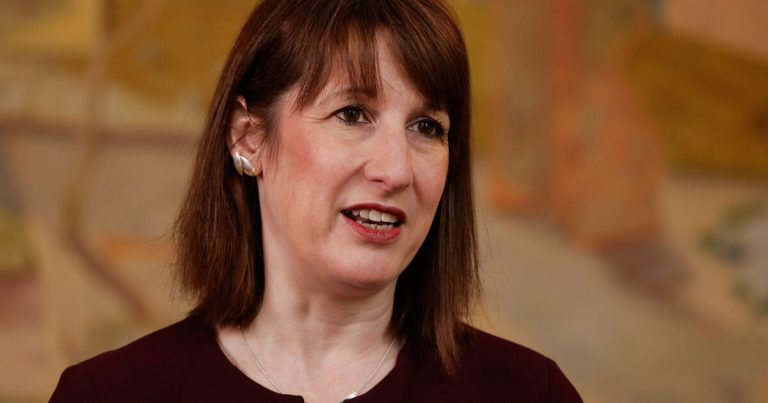

Soaring property prices mean more families end up paying inheritance tax or IHT (Image: Getty)
More families are expected to take a form of life insurance which can cover the cost of an inheritance tax bill – thereby cleverly “avoiding” Rachel Reeves’s latest charge.
One insurance provider has already launched a new product this week. Royal London said it had launched an inheritance tax busting product to cope with a rise in demand.
The new IHT rules, set to come into effect from April 2026, have been heavily criticised because they target farmers with businesses valued over £1million, although Reeves defended the change saying it was needed to raise £520m to pay for government spending.
Another blow to savers was Reeves’s decision to remove the inheritance tax protection around pensions; the government is consulting with the pensions industry on how to introduce this.
READ MORE Average UK house price hits new record high of £298,083 in November [LATEST]
Sarah Coles, head of personal finance at Hargreaves Lansdown said: “Someone with an estate worth £1 million, including an £800,000 house would currently pay no inheritance tax, but if house prices rise 4 per cent during the year, even if all assets remain the same, they could pay tax of £12,800.”
But there is one way families can make sure they can afford to pay for a hefty IHT bill, by taking out of type of life insurance that pays out a lump when a loved one dies.
Protection advisers, who specialise in life insurance, are seeing an increase in the number of families looking to take out the product because it can help pay for some or all of an inheritance tax bill.
Don’t miss…
Inheritance tax exemption rule could ‘cost you more than it saves’, expert warns [LATEST]
‘Simple method to survive Labour’s IHT raid – follow the new 5-year rule’ [ADVICE]
Naomi Greatorex, managing director of Health Protection Solutions, has seen a 50 per cent increase in families looking at taking out IHT-related life insurance this year, largely because of the expectation a Labour government would have IHT in its sights.
She said: “I expect this to increase even more next year when some of the changes come into force.”
Greatorex said the earlier the life insurance was taken out the cheaper it would be, and that 40 and 50 year olds may be able to pay as little as £60 a month. A 60-year-old could expect to pay more, £81.55 per month, while a 65-year-old would pay £134.52 per month.
“Once you are over 70 it can go up to £234.72 per month or a 75-year-old may pay £420.53 a month.”
Protection and insurance guru Alan Lakey said there were two ways life insurance policies can be written to cover an IHT bill.
Either a whole of life single life or joint life second death policy, or as a Gift Inter Vivos.
Gift Inter vivos insurance is a seven year term insurance taken out by wealthy individuals who feel they may not live another seven years and want to use the 7-year rule to give their children or grandchildren cash.
This type of life insurance gets cheaper and if they haven’t died at the end of the seven years then no IHT is due anyway.
This type of insurance is written using trust law so the money paid out will have to be paid into a tax-free or tax-friendly trust. If it is paid into the estate it then becomes taxable so subject to inheritance tax.
This month, Royal London launched a joint life second death life insurance which is said was “designed to offer a cost-effective alternative to whole of life cover for those with potential IHT liabilities”.
Families will need to work out how much IHT they pay before taking out the cover.
Lakey added: “An estate valued at £1.5m would mean a current IHT bill of £200,000. This assumes that each spouse/civil partner has a £325,000 IHT nil rate band plus an additional £175,000 property allowance each.”
“Therefore in this instance you would make an assumption of future estate inflation based on their age, likely longevity and how the estate is set up (is it primarily property or is there an investment portfolio?)
It might be that the estate value is assumed to be £1.8m and we assume that IHT bands and tax rate remain as now.
Therefore the excess over allowances is deemed to be £800,000 attracting an IHT bill of £320,000.
“A joint life 2nd death plans written in trust for the beneficiaries enabling them to pay the IHT shortly after death. This is important because the executors of the estate cannot sell the property until the IHT is paid.
What is Gift Inter Vivos
“Everybody is allowed to make gifts,” says Lakey. “Tax-free gifts are limited to £3,000 per year. For most people this is insufficient so a gift of say £50,000 is made. If the gifter dies within seven years some or all of the gift is added back into the estate.
Years 1-3 100 per cent becomes taxable, while in year four this goes down to 80 per cent, in year five it is 60 per cent, and in year seven 20 per cent. After seven years the gift is not included for tax purposes.
Lakey urged families to act now, adding: “Most people leave IHT concerns until they are in their 60/70/80s. This means that the cost is not only a lot higher than back in their 40/50s but there is also a high chance that they will no longer be healthy and therefore asked to pay more or, in some cases, be unable to obtain insurance.”
What is inheritance tax?
Inheritance tax is only paid when someone has died.
There’s normally no Inheritance Tax to pay if either:
- They have left less than £325,000
- Or they have left any cash or assets above £325,000 threshold to either your spouse, civil partner, a charity or a community amateur sports club
If you give away your home to your children (including adopted, foster or stepchildren) or grandchildren your tax threshold can increase to £500,000.
If you’re married or in a civil partnership and your estate is worth less than your threshold, any unused threshold can be added to your partner’s threshold when you die.





